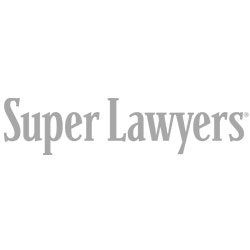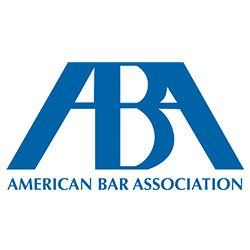Commercial Litigation Attorney in Billings, MT
What Is Commercial Litigation?
In the U.S. justice system, there are criminal charges and civil suits. Criminal charges are brought when a law is broken. Civil suits are brought when one party feels wronged by another. Commercial litigation is when at least one of the parties involved in a civil suit is a business.
An individual can pursue commercial litigation against a business or vice versa. Two companies can pursue commercial litigation against each other, and one business partner can even pursue litigation against another. As a result, the cases are widely varied and may be incredibly complex, necessitating the help of a business attorney.
Are There Any Alternatives to Litigation?
You don't necessarily need to sue someone to get a favorable resolution. In fact, the majority of cases end in one of the following:
- Collaboration
- Mediation
- Arbitration
Collaboration involves both parties working together toward a resolution. Mediation involves an objective third party that mediates between two opposed parties to reach a solution. Arbitration follows the same process as a trial but is less formal and doesn't usually happen in court. In all three cases, you'll need a commercial law attorney to represent your interests.
Why choose an alternative over litigation? Full-blown litigation can be expensive and take a long time. Choosing collaboration, mediation, or arbitration can save time and money and help you preserve valuable business
relationships.
What Are the Common Types of Business Litigation?
While there's a wide array of dispute types, there are a few that arise more often. The most common types of business litigation are the following:
- Personal injury claims
- Product liability cases
- Partner disputes
- Shareholder disputes
- Employment disputes
- Breach of contract cases
- Intellectual property disputes
Can I Sue a Financial Advisor?
It's possible to sue a financial advisor. However, you must prove that you incurred losses due to the financial advisor's or firm's failure to follow regulations set by FINRA, which can include the following:
- Unauthorized trading
- Lack of diversification
- Excessive trading
- Breach of fiduciary duty
- Material misrepresentations or omissions
- Unsuitable investments
Can I Sue for Breach of Verbal Contract?
You can sue for breach of a verbal contract, but it'll be more difficult than suing for breach of a written contract. While both are legally binding agreements, written contracts include concrete details that can be used as evidence. For the most part, verbal contracts are spoken agreements that may not be recorded in the same way. If you want to sue for breach of oral contract, you may need a business attorney.
Can My Former Employer Stop Me From Working for a Competitor?
If you signed a non-compete agreement, your former employer could stop you from working for a competitor. These agreements are meant to prevent former employees from sharing trade secrets, though they can also be used to "lock-in" workers in a niche industry.
Can I Sue When a Business Interferes With My Clients?
Yes, if another company interferes with your business clients and you can prove that it negatively affected your enterprise, you can sue that company. Purposefully interfering with another business's relationships is grounds for a civil suit called a tortious interference lawsuit.
What Types of Business Disputes Does Your Firm Handle?
Our Billings, MT, firm can handle a variety of business disputes:
- Consumer claims
- Breaches of contract
- Partnership disputes
- Shareholder disputes
- Joint venture disputes
- Class actions
- Breaches of fiduciary duties
- Fraud
- Misrepresentation
- Tax disputes
- Trademark and business name disputes
- Unfair trade practice disputes
- Licensing issues
- Breaches of warranty claims
My Business Partner Breached Our Contracts (a Partnership Agreement, Operating Agreement, Management Agreement, Bylaws, etc.), Committed Fraud, or Is Not Acting in the Business’s Best Interests. What Steps Should I Take?
Should your business partner become in breach of contract, it's within your rights to sue them. However, this may be easier said than done. If you're a minority partner, it may be difficult to sue on the company's behalf because you don't have control of the company.
That said, if the partner is harming the company by breaching the contract, it may be worth the effort to sue or even have said partner removed. If you've decided on this course of action, you'll need a business attorney in your corner.
If you feel the business relationship is worth saving, you can try an out-of-court settlement. Though the parameters aren't court-ordered, they'll still be legally binding.
Another Company Breached Its Contract With Our Business, Has Committed Fraud, Is Stealing Our Trade Secrets, or Is Harming Our Business in Some Other Way. Do I Need a Business Attorney, or Can I Settle This Dispute on My Own?
When another company purposefully interferes with your business with the intent to harm it, you can take legal action. While it's possible to sue on your own, there's a high chance that the other company will fiercely contest the suit. If you want to settle the matter in your favor, you'll likely need a business dispute attorney.
What is Considered a Business Dispute?
Many people think only of banks and financial institutions when they think of commercial disputes, but litigation over business issues is far broader. From the smallest mom-and-pop company to the world’s largest corporations, the range of legal problems that can arise in business and commercial transactions is nearly endless. They include breaches of contract, partnership and joint venture disputes, class actions, business torts like fraud and misrepresentation, breaches of fiduciary duties, shareholder disputes, consumer claims, and the list goes on.
Business or Commercial Transactions
Regardless of the specific business, if you run into a problem in a business or commercial transaction, or want to take steps to avoid a dispute before it arises, the attorneys at Ritchie Manning Kautz are well-positioned to help. Our experience covers a wide variety of commercial disputes, many of which are detailed in our other practice areas as well.
Additional Examples Include:
- Litigating a tax dispute for a mining company in southeastern Montana.
- Montana Supreme Court appeals in cases from Missoula, Billings, and Butte involving claims against banks for unfair trade practices and lender liability.
- Class actions involving claims by workers against businesses alleging that the businesses failed to property pay overtime.
- A trial involving claims by a contractor that he was not paid for work performed on a home remodel in Billings.
- A case involving breach of warranty claims by a seller of airplane engines.
- A lawsuit involving a dispute over the amount earned by a general contractor from the construction of a municipal project in Billings.
- Multiple cases involving claims against credit card companies for fraud and deceit.
- Counseling a Helena-based trade association regarding licensing issues.
- Assisting a petroleum services company in Billings and Miles City with potential trade secrets claims against a competitor.
- Helping clients with business name and potential trademark disputes.
Can My Business Dispute Be Settled Outside of Court?
Yes, a business dispute can be settled outside of court. In fact, most people prefer to go this route. Do note that any out-of-court negotiation still involves navigating legal rights and limitations, so hiring a business attorney may be in your best interest.
Contact RMK Law Firm for Assistance in Resolving Your Business Disputes
If you need help with legal issues in
Billings, MT, RMK Law can assist. To find out more, give us a call at
406-601-1400 or contact us
online.









